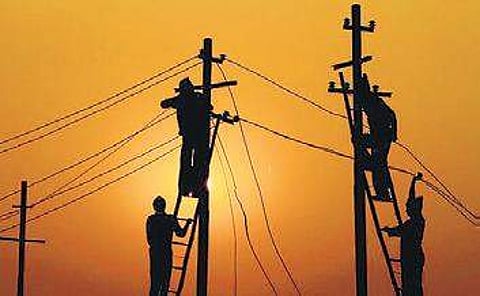

KOCHI: With the mercury breaching 40 degrees Celsius in many parts of the state, the power network has come under intense strain. According to the KSEB, 578 of its transformers have failed in the past two-and-a-half months. With peak-hour load setting new highs, the board has been fighting frequent outages, voltage fluctuations and blown transformers. Outages during night hours have seen outraged consumers gathering in front of KSEB section offices and involving in altercations with staff.
As a result of the unseasonal heat wave since early February, power consumption has been on the rise. And the KSEB has struggled to keep up with demand. While as many as 116 transformers tripped in February, the number shot up to 207 in March. As many as 255 transformers were replaced in the month to April 18. Kerala Electrical & Allied Engineering Co Ltd (KEL) is contracted to supply transformers to KSEB.
However, with the public-sector firm failing to ensure timely supply of equipment, the board has been forced to purchase transformers from the second lowest bidder, a Hyderabad-based firm. Due to power overload, transformer oil overheats and the contacts and winding melt, which leads to tripping. Once a transformer trips, the KSEB has to replace it, which is a time-consuming process.
Spike in protests
According to the KSEB, there has been in increase in incidents of protests at its offices. “Our offices are sparsely staffed during night hours. The protests and altercations leave the staff panicking and delays the work to restore connections,” said a board official. On Friday, power consumption stood at 108.51 million units with peak-hour demand of 5,478 MW.
The state set a record of 5,529 MW in peak-hour demand on Wednesday. “We have been urging consumers to avoid charging vehicles during peak hours. The rise in use of air conditioners and charging of electric vehicles have led to the rise in power consumption during night hours. Charging an electric scooter takes up power that can run two 9W LED bulbs, two 20W LED tubes, two BLDC fans and a one-ton AC for six hours,” he said.
The demand for power from the national grid has been rising with summer peaking across the country. There has been scarcity in the ‘day-ahead market’ due to rising demand. The additional 180MW of power allocated by the Centre has allowed the KSEB to tide over the crisis. The additional power has been allocated for two months from April 15. Besides, the board gets 11.5 million units of power through a monthly contract and 10 million units through short-term open access purchase. Around 3 to 5 million units is purchased daily from the real-time market.